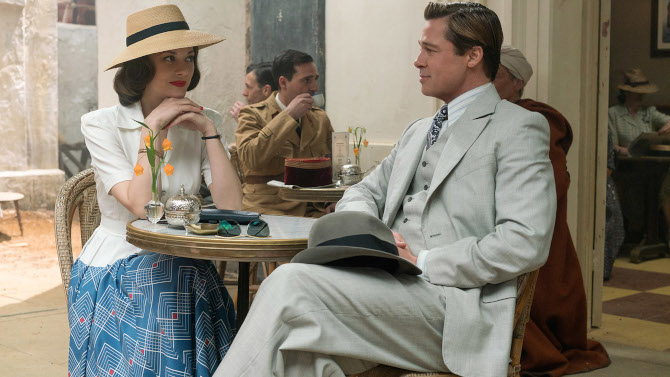
Déjà vu Dalliance
Channeling the mesmeric movies churned out by the studio system back in the 1930s and 40s, Allied (2016), directed by Robert Zemeckis, channels the likes of Morocco, Casablanca, Across the Pacific, Gilda, To Have and Have Not, and numerous others – attempting to find a spark from the classic themes of melodrama, romance, suspense and the epic nature of the annals of the cinematic past, with quite successful results. Set the year Casablanca and Across the Pacific were released – 1942, the story in fact starts in Morocco, with recently parachuted in Canadian spy Max Vatan (Brad Pitt) meeting up with another undercover agent, Marianne Beauséjour (Marion Cotillard), who will be pretending to be his wife.
-
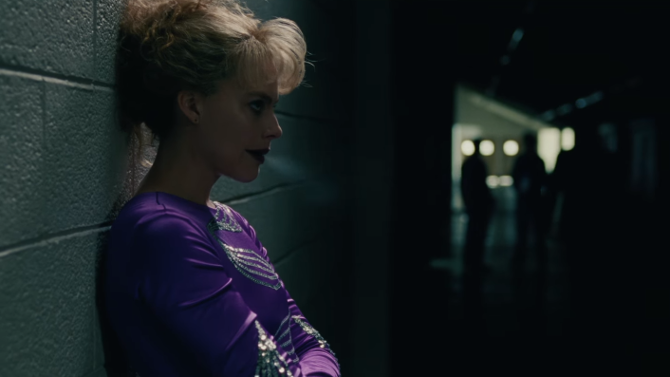
Spinning a Tale
I, TonyaFebruary 23, 2018Like landing a triple axel, figuratively speaking, I, Tonya writer Steven Rogers and director Craig Gillespie (Lars and the Real Girl) conquer the difficult feat of bringing the complicated career of figure skater Tonya Harding to vivid life on the big screen. Relishing in the ‘perception of truth’, Rogers and Gillespie develop a bio-pic mockumentary style approach, each character having their own version of the story. Complex in its narrative direction, multiple persons have their say, sometimes breaking the fourth wall and talking directly to the audience – at one point, Harding (Margot Robbie – Academy Award nominee for Best Lead Actress), gun in hand, makes it quite clear that this portion of the tale never actually happened – a rebuttal to her husband, Jeff Gillooly (Sebastian Stan), and his unflattering perspective.
-
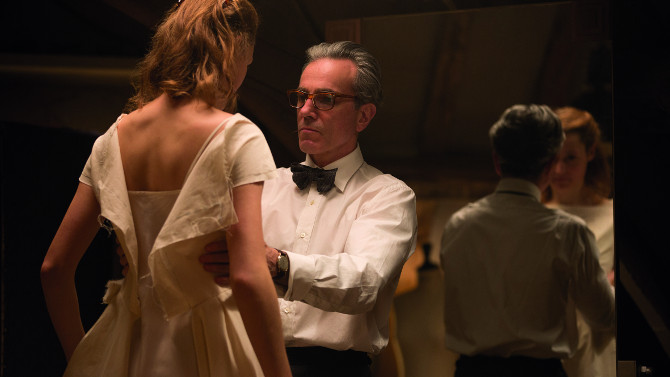
What a Tangled Web We Weave. . .
Phantom ThreadFebruary 18, 2018Perhaps the end of something very special. . . that is, if Daniel Day-Lewis does follow through and retire from acting after his most recent lauded performance in Paul Thomas Anderson’s Academy Award Best Picture nominee Phantom Thread. It is this nuanced role that will bookend a career that has consisted of six deserving nominations and three well earned Oscars (four, if he wins this year). At the heart of this tale of gothic romance (Anderson’s narrative and classic visual aesthetic reminiscent of movies like Rebecca), Reynolds Woodcock (Day-Lewis) is a renowned dressmaker (circa the 1950s), a man who, like his flawlessly tailored clothing (he hides secrets in the work), expects everything to be just perfect. He is peculiar in his cleanliness and rigidity – every hair in its place, absolute quiet at breakfast (his entire day ruined if his stringent routine interrupted). . . obsessive in every which way, including in that he is still haunted by the death of his mother. An example of this fiefdom of rules and attitude – after tea is brought to him at the wrong time, he exasperatingly exclaims, “the tea is going out; the interruption is staying right here with me”.
-
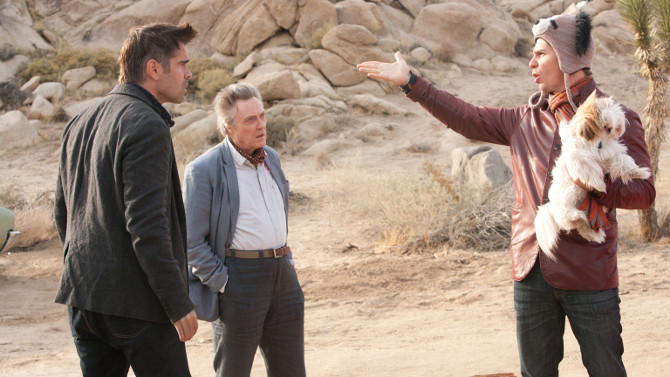
Following the Paths of Psychos
Seven PsychopathsFebruary 6, 2018One of the most originally creative scripts to be found on either side of Ebbing, Missouri, Martin McDonagh’s Seven Psychopaths, released in 2012, is an example of the writer/director’s many talents (twisty nuanced stories, richly drawn characters, beautiful dialogue, and so much more) that have made his most recent effort, hinted at above, Oscar bait this Awards season. With a screenplay that keeps the audience on its toes for quite a while, we are often guessing what we are truly watching. At first glance a meta cinematic commentary on writing a screenplay – Colin Farrell’s Marty has writer’s block, it is perhaps best summed up after he heads out into the desert with his two buddies. . . leading to one of them, Sam Rockwell’s Billy, describing how his treatment of the script should conclude. With Marty in disbelief at its over-the-top violence, the third friend, Christopher Walken’s Hans responds, perhaps somewhat surprisingly, “It’s got layers, you know. . . it’s got. . . It’s got many layers”. Adding another ‘layer’ of meta, we eventually realize that not all that is written on the page is fictional and that we may be watching flashbacks from several characters’ pasts.
-
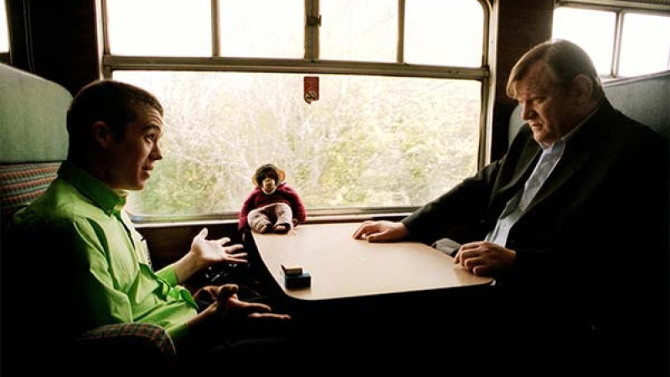
Train Wreck
Six ShooterJanuary 9, 2018There are many actors and directors that I have long championed, one of which is filmmaker Martin McDonagh. More of a household name today than a few days ago, this past Sunday he took home both Best Screenplay and Best Motion Picture - Drama at the 2018 Golden Globes for his film Three Billboards Outside Ebbing, Missouri (the feature also won for Best Actress - Drama: Frances McDormand, and for Best Supporting Actor: Sam Rockwell). First and foremost a British/Irish playwright, McDonagh made his feature film debut in 2008 with the tragically under-seen In Bruges – a movie that will be reviewed on Filmizon.com in due course. This was followed by a 2012 American/British co-production, Seven Psychopaths, another intriguing film. His third is the award winner from Sunday. . . though many probably do not know that McDonagh won an Academy Award back in 2005 for Six Shooter, earning the golden figurine for Best Short Film, Live Action (his true first effort into the foray of film making).
-
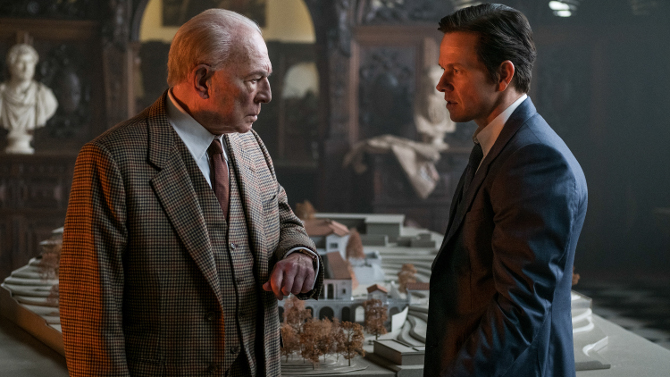
Can’t Buy Me Love
All the Money in the WorldJanuary 2, 2018With a tale that almost sounds like it is right out of the movies, All the Money in the World, Ridley Scott’s 2017 buzzing biopic on the Getty abduction of 1973, was hit hard when star Kevin Spacey got wrapped up in the ever-growing series of sexual assault allegations. . . about one month before the film’s release. In comes Scott’s original choice, acting icon Christopher Plummer, who, with the help of a few returning actors, re-shot the entire role in only four short days – thrusting him into the Best Supporting Actor race at this year’s Golden Globes. . . and likely the Academy Awards. Despite all of the headlines that have pushed people’s attention away from the motion picture itself, it is an engaging piece of cinema. The plot revolves around 16 year old J.P. “Paul” Getty III (Charlie Plummer), the grandson of eccentric billionaire oil baron J. Paul Getty (Christopher Plummer), who is abducted late one night off of the streets of Rome.
-
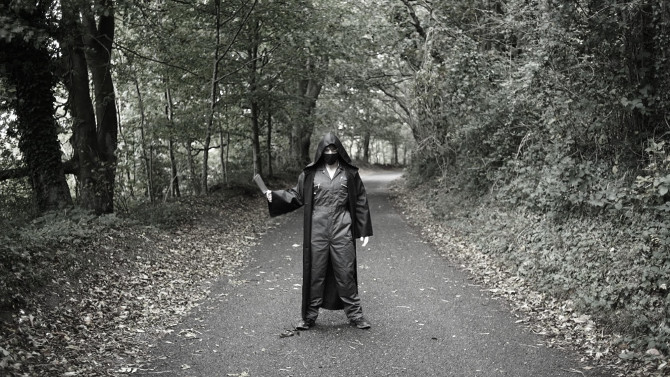
How to Stave Off Your Midday Hunger
HangryDecember 19, 2017Hangry: bad tempered or irritable as a result of hunger; also the title of the most recent short film from UK Indie writer/director Daniel Harding. Fusing classic horror elements with a modern twist (and adding a few dashes of macabre humour), a posh British couple, Clarey (Sophie Dearlove) and Boyd (Neil James), are taking a trip away from the stresses of their big city life, though, along the way, get lost in the countryside. Both a bit peckish, a surly, ornery attitude begins to seep into their conversation – I am quite sure we have all been there before.
